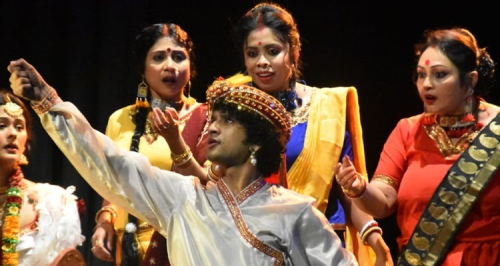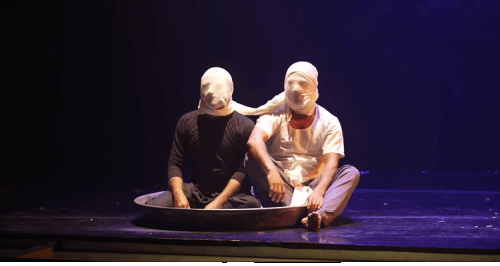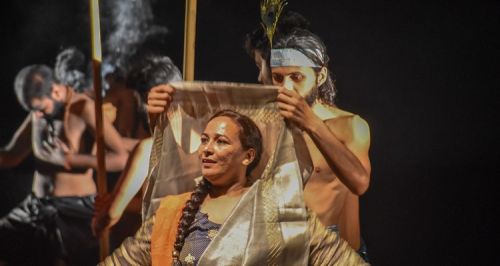Nautanki Zindagi: The Reclamation of a Life Lost
Photo Credit: A Straight Proposal (Play)
When I first found love, it was with a woman. I can hardly say we walked the streets wearing our gay pride on our sleeves and ushering in a tolerant political and socio-cultural atmosphere. We were so caught up in loving each other that all we wanted to do was to be left alone to find a suitable place to snog. Not to underscore the extremely important activity of crusading for a sexually egalitarian society. With our lives involuntarily entangled in the political and cultural, what often-times gets completely lost, buried in the political and social discourse, as if it was the only place we truly exist, is the fact that members of the LGBT community are, like the rest of everyone else, human.
I’ve never quite looked at my gay friends as political insurgents, social outcasts, activists. To me, they are, like my straight cis-gender friends, real people caught up in the business of living. In the course of their lives, they, like the rest of heteronormative population, have had difficulties finding a place where they fit in, have had the same qualms about careers, about money, about work-place and family politics. Like most adolescents, they have fallen out with their parents at one time or the other. They often find love that can inspire those around them, and are often seen nursing heartbreaks with a mug of cheap, suspicious alcohol and other questionable substances.
The lives of gay people, of transgendered people, become so much less than human narratives, viewed simply through the lens of a political debate. The Colour of Trans 2.0, a now well-known play performed by a Chennai-based theatre group, Panmai (the first transgender theatre group in Tamil Nadu), captures the reality of the actors’ lives at a daily level, where daydreams are often destroyed by a reality that is a nightmare. The play shows the nitty-gritty of the struggle that the actors have gone through, their pain so immediate, the drama so vivid and real. And this is precisely the emancipatory potential that theatre and dramatisation afford.
Dramatic reality is a mimetic presentation of actual reality. Dramatic reality offers a space where one can show the painful disconnect between the apparent and the real — such an everyday experience in a transgender’s life, where truth becomes an assertion — and is not an ontological given. In drama therefore there is the granting of a humane voice and an expression of the full complexity of a life heavy with many layers of discrimination and forever lived on the margins.
While transgender stories have long been part of the country’s theatre, right from Satish Alekar’s Begum Barve (1979), the stories of others on the LGBT spectrum have entered theatre only recently. The Q Musical, Mumbai Queer Parade’s charming entry into drama, was an unabashed, loud Bollywood musical. In placing unfamiliar themes (the lives of gay men) in a familiar setting, the play effectively reached a wide audience, reclaiming a normality that is only rightfully theirs. Other prominent playwrights often use classic Indian theatre signatures to create convincing vignettes. Vijaydan Dhetha’s play which was adopted into Dohri Zindagi for Gender Bender, the queer culture festival, is a story of two women who happen to be married. Dhetha narrates a glorious relationship between the two girls who leave their familial and societal bonds. One of the girls, aided by a mythical “ghost-chief” turns into a man in order to live a “normal, married life”. But, in a startlingly complex narrative, we see that as she becomes a man, their perfect world shatters when the arrogance and inequity of a typical heterosexual, patriarchal relationship enters it. The “woman” actually then opts out, leaving the “man” to feel sharp remorse and a reversal to his former womanhood.
The play, performed in the traditional zawaadi style, concludes with the two girls living together for eternity as lovers, friends, sisters, while appearing to be normal in the eyes of society, is a story far ahead of its times.
And this is how I hope to see tiny cracks appear in order to kick-start a change in the narrow confines of our societal mindsets — through progressive narratives – of which theatre is perhaps one of the most powerful tools - which can open closed windows and let in the whiff of fresh, different realities.
-Â Faustina Johnson





Leave a reply